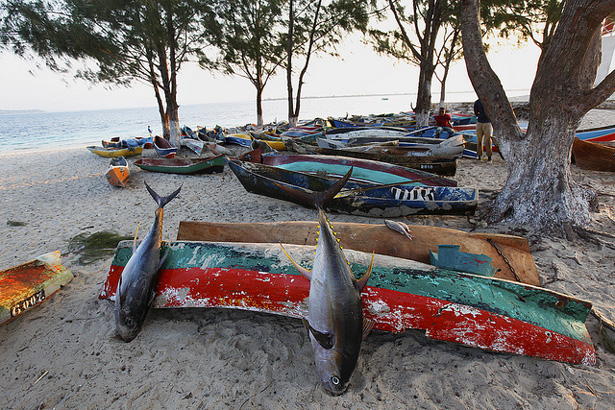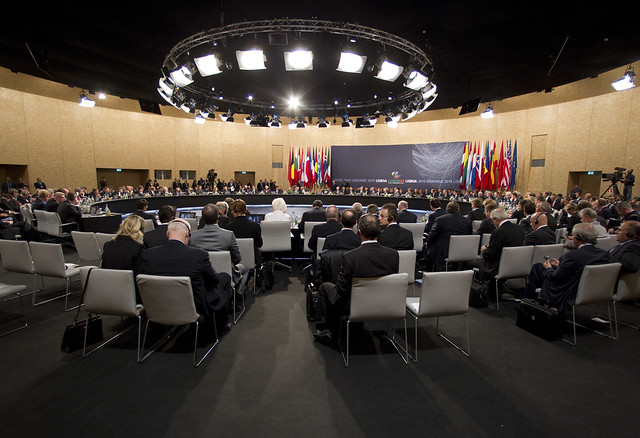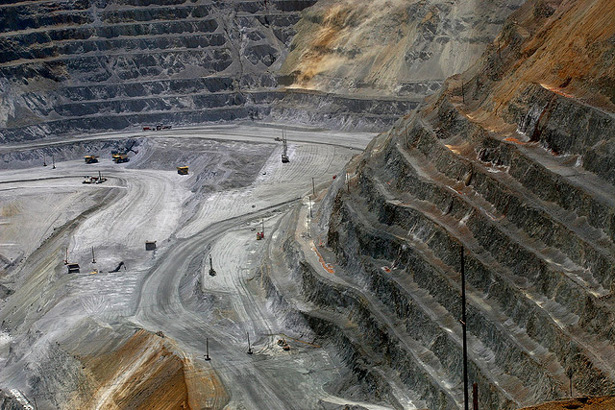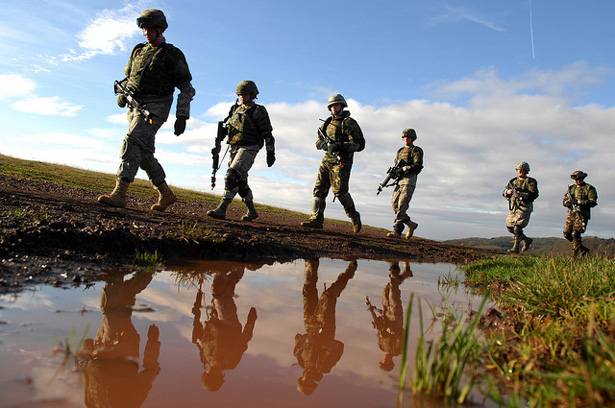-
Natural Gas and Albacore: What Tuna Says About the Future of Mozambique
›January 13, 2014 // By Laura Henson
A 20-year peace accord between Mozambique’s two major political parties was brought to an abrupt end last fall. A series of violent skirmishes between FRELIMO and RENAMO resulted in at least 10 deaths, dozens injured, and fears that the country might relapse into the kind of political violence seen during its civil war, which left more than a million dead. RENAMO claims its frustrations stem from a fraudulent electoral system and social inequality, but some observers have suggested their motivations may be less benevolent: making sure they get their piece of the country’s newfound natural gas wealth.
-
Geoff Dabelko on Avoiding Conflict From Climate Adaptation
›
Although major global action remains stymied in many respects, policymakers around the world are increasingly at least recognizing the need to increase resilience to the effects of climate change. But are the consequences from hastily implemented initiatives being adequately considered? Perhaps not.
-
Amidst Climate Change and Shifting Energy Markets, New Challenges for Transatlantic Security
›
“In the post-Cold War period, the challenges of energy, environment, climate change, and water have become very much a part of our fundamental transatlantic relationship,” said CNA General Counsel Sherri Goodman, launching a new report on U.S.-EU security at the Wilson Center. [Video Below]
-
Ghaith Abdul-Ahad, The Guardian
The Anarchy of Syria’s Oilfields
›June 27, 2013 // By Wilson Center Staff
The original version of this article, by Ghaith Abdul-Ahad, appeared on The Guardian.
A northern wind had been blowing since early morning, lifting a veil of dust that had blocked the sun and turned the sky the color of ash. Abu Zayed was sitting on the porch of his unfinished concrete home, watching the storm build. He loved sandstorms. They reminded him of Dubai, where he had lived before the war. He admired the people there for turning a desert into a paradise. They had vision, he told his followers.
-
Despite “Greener Economy,” Extractive Industries’ Effects on Global Development, Stability Bigger Than Ever
›
Despite the appearance of a new, “greener” economy, extractive industries – mining, oil, and natural gas – are now responsible for “moving more earth each year, just for mining and quarrying, than the global hydrological cycle,” writes the Transatlantic Academy’s Stacy VanDeveer in a recent paper, Still Digging: Extractive Industries, Resource Curses, and Transnational Governance in the Anthropocene. The costs of this activity are high and extend well beyond the wallet, he explains.
-
Environmental Security: Approaches and Issues (Book Preview)
›
A little over a decade ago when I first became interested in the subject of environmental security, it took me ages to understand what I have since been eager to stress: environmental security is not a concept but rather a debate.
-
East Asia’s Many Maritime Disputes and the Imperative of Energy Access
›Friction between Japan and China in the East China Sea has escalated this year to the point where jets on both sides have been scrambled and Chinese military vessels have locked their fire control radar onto their Japanese counterparts multiple times. The source of this tension is the Senkaku (as they are known in Japan) or Diaoyu (if you’re in China) Islands – specifically, who owns them.
-
‘Global Trends 2030’ Author Mathew Burrows Describes Demographic and Environmental Megatrends
›
“The world of 2030 will be radically transformed from our world today,” reads the opening of Global Trends 2030: Alternative Worlds, produced by the National Intelligence Council. In this podcast, principal author Mathew Burrows breaks down some of the scenarios discussed in the report, and describes how demographic and environmental trends – two of four “megatrends” – could play out over the next few decades.
Showing posts from category natural gas.










